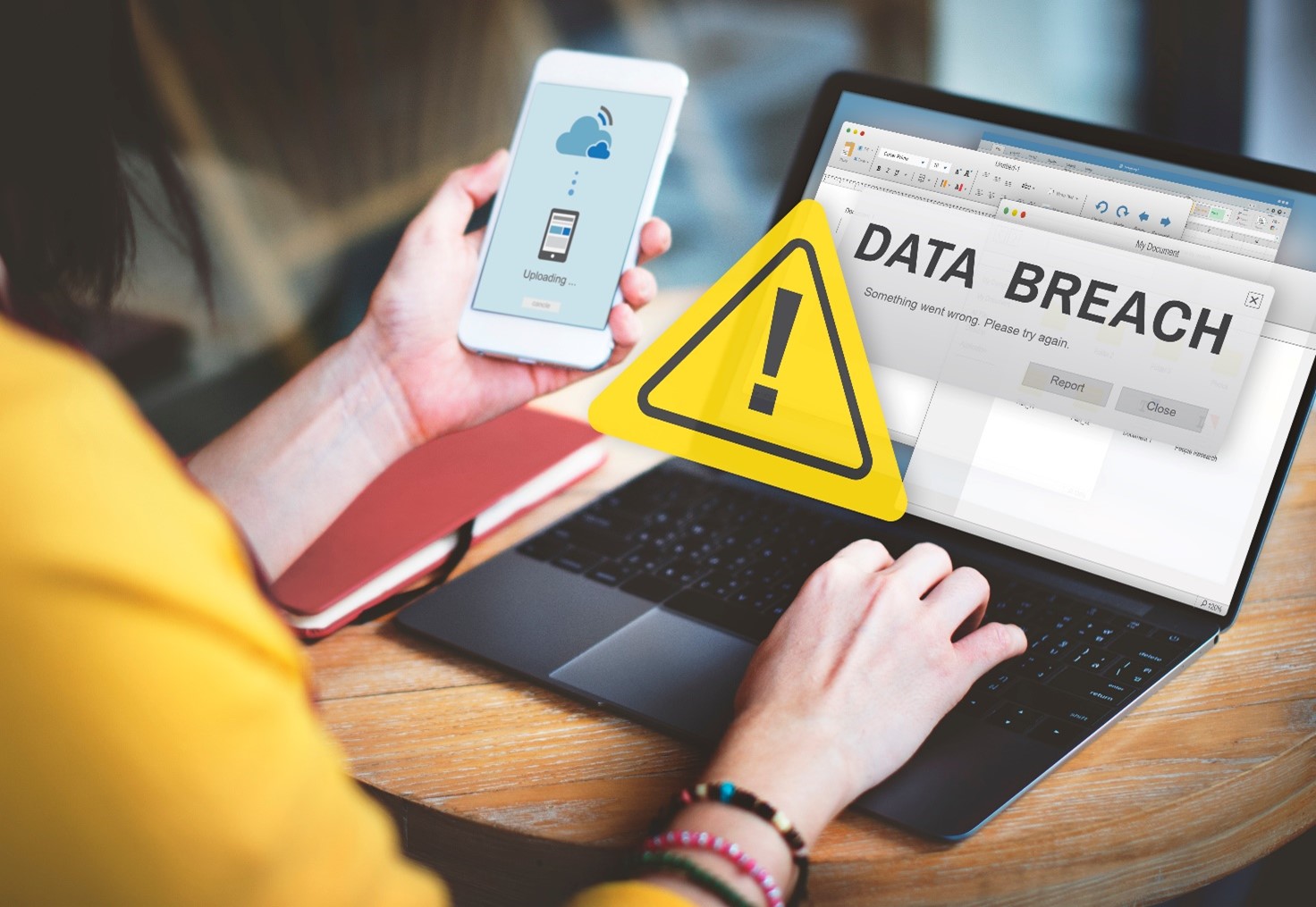What to do when you have suffered a data breach
What to do when you have suffered a data breach
Protecting your personal data is more important than ever. As we do more of our daily tasks online, more and more companies and organisations are getting access to our information. This can be as simple as your name and address, or it can include intimate details of your finances and medical history.
Unfortunately, it is impossible to be perfectly safe with your data. Whatever steps you take to protect yourself, there will always be the risk of a data breach.
A data breach is simply the failure of a company or organisation to follow the regulations and properly protect your data. This can potentially result in your personal information becoming accessible to others. See our detailed blog for more information on data breaches.
Many people are unsure what to do after a data breach, so we have put together this guide to help you protect yourself if you ever suffer from a data breach.
Given these risks, it’s vital that you know what to do in case of a data breach.
In this post, we’ll give you a simple guide on what to do after a data breach. This includes the steps to take if you find out you have been a victim, as well as letting you know why it’s so important to be prepared.

The impact of a data breach
You may be tempted to consider data breaches as something that don’t really concern you. You may even think that there’s no real danger when it comes to your information being available to others. After all, you have nothing to hide!
However, even the simplest of information can be used by criminals to cause you significant harm.
Potential negative impacts of a data breach include:
- Financial losses: Using basic information like your name and date of birth, there are many tactics criminals can use to gain access to your bank account. A data breach may even expose your bank details directly. This can lead to significant financial damage.
- Identity theft: Information such as your name and address can be used to steal your identity. This can mean taking out substantial loans in your name, making purchases on your behalf, and even committing crimes in your name.
- Reputational damage: Some personal data, such as your medical information or details of your finances, can do damage to your reputation if made public. This can have an impact on your personal relationships and your employment prospects.
- Emotional distress: In all of these cases, there can be a major emotional impact, even leading to mental health issues or psychological trauma. This need not even be the result of any of the above situations. After all, even the anxiety about these possibilities can be distressing.
As you can see, the impact of a data breach can be enormous, and in extreme cases can have devastating long-term consequences.
That’s why it’s absolutely vital to prepare yourself in advance and know the exact steps you need to take in case of a data breach.

What should I do if I have been the victim of a data breach?
The General Data Protection Regulation (GDPR), which came into force in 2018, states that a company or organisation must notify you if your data has been exposed in a data breach.
But if you are notified, you need to know what to do next.
As you can see from the potential negative impacts mentioned above, you should waste no time in protecting yourself. The following steps should be taken as quickly as possible. Here are the main things you need to do if you have suffered a data breach.
Check your bank account
You should immediately check your bank account. It’s a great idea to make sure you’re registered for online banking. That will make this step as easy as possible.
Check the balances for all your accounts and review any recent transactions. If there’s anything on there you don’t recognise, contact your bank as quickly as possible.
Cancel your debit and credit cards
Your bank will have a facility for reporting your cards as lost or stolen. If there is any risk that your card details have been exposed, you should do this straight away.
Again, registering for online banking will make this easier, as most banks will allow you to report your cards stolen using a smartphone app.
Change all your passwords
We must stress here: change all your passwords.
It’s important that you don’t just change the passwords for accounts exposed in the breach. Nor should you only change passwords for other accounts that use the same one.
You should change every single password!
There is a reason for this. With access to one account, it is possible for a criminal to gather enough information to access other, unrelated accounts – even ones with different passwords.
Of course, this can seem like a massive task. Many of us have a huge number of online accounts registered in our names. For this reason, consider using password management software. This will automatically store your passwords and let you change them quickly.
Do a credit check on yourself
There are a range of services that will allow you to perform a credit check on yourself. By doing this, you will be able to find out if any loans or other credit-based purchases have been taken out in your name.
As we discussed above, identity theft is one of the major risks arising from a data breach. And it is not always immediately obvious if your identity has been stolen. That’s why doing a credit check is so important.
Be wary of scams
Of course, you should always try to be wary of scam phone calls, text messages and emails.
But this is even more vital if you have been the victim of a data breach. People with access to your data may try to impersonate your bank, your internet provider, or some other company. The fact that they will have some of your personal information can make this very convincing.
So, it’s vital that you take extra care following a data breach. If you have any concerns about a caller’s identity, you should always hang up and call the company back using an official number from their website.
For emails, always double-check the email address. Again, if you are unsure, find an email address on the company’s website and contact them that way.

Can I claim compensation for a data breach?
Taking these steps as soon as possible should help you to protect yourself from any of the negative impacts we outlined above.
However, given the severity of the potential issues, you may be wondering if you have any legal options. This is especially true if you have unfortunately been unable to avoid some of the damage a data breach can cause. Similarly, if the information exposed was sensitive, you may feel that you deserve to be compensated.
Thankfully, if you are the victim of a data breach, you are entitled to take the company or organisation in question to court. Compensation can be a major step in healing some of the damage done by a data breach.
However, it’s important that you seek the advice of solicitors with specific experience in data breach cases. That way, they’ll be able to give you expert advice on your case with full knowledge of the regulations involved.
Get in touch with HNK Solicitors for your data breach claims
Here at HNK Solicitors, we have helped a wide range of clients seek compensation as a result of a data breach. Our expert team understand the substantial damage data breaches can cause and can offer you clear, friendly, and knowledgeable support.
We offer free, no-obligation consultations to help you find out if you may be entitled to compensation. So, if you think you may have been the victim of a data breach, get in touch with us today. Call us on 0151 271 5387 or fill in the enquiry form on our website to start your claim today. If we do think you will be entitled to compensation, we can offer to take up your case on a no-win, no-fee basis.
Recent case studies
3 July 2025
HNK Recover £34,000 in Damages and Costs For Client Against British Transport Police and Avon and Somerset Police












